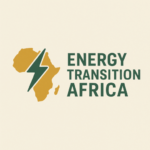In Abuja, oil still smells like prosperity. Along the congested streets of Warri or Takoradi, diesel generators hum a familiar tune of survival. For decades, the promise of oil has been both a burden and a blessing for many African nations. But now, as global institutions turn their backs on fossil fuels, the continent finds itself at a crossroads. How do you exit a resource that is still central to your economic lifeline?
The World Bank, in a recent policy shift, confirmed it would stop financing new oil and gas projects, aligning with a wider movement to phase out fossil fuel dependence globally. For Africa, where fossil fuels account for over 40 percent of export earnings in countries like Nigeria and Angola, and more than 60 percent of national revenue in others, this move is seismic.
“We’re being asked to quit before we’ve started,” said Ghana’s Minister of Energy at the Africa Energy Week in Cape Town. “Our emissions are minuscule, yet we’re told to decarbonise with no safety net.”
A Continental Catch-22
Africa holds approximately 125 billion barrels of oil and vast natural gas reserves. Governments argue these are essential to industrialisation, poverty alleviation, and post-pandemic recovery. According to the African Development Bank, over 600 million Africans still lack access to electricity, making energy poverty one of the continent’s most pressing development challenges.
And yet, international donors and financial institutions are pulling out. The European Investment Bank, HSBC, and even some Chinese financiers have scaled back funding for oil infrastructure. Civil society organisations, particularly from the global North, are celebrating this shift as a win for the climate. But on the ground in Africa, the picture is far more complex.
Nigeria and Ghana: Stories from the Frontlines
In the Niger Delta region of Nigeria, oil is both a curse and a means of livelihood. Communities have endured decades of spills, gas flaring, and displacement. Yet thousands rely on oil-related activities for survival.
Blessing, a 28-year-old single mother in Bayelsa, sells food to pipeline repair workers. “If they shut down oil, what happens to me and my children? This is our only market.”
In Ghana’s Western Region, offshore oil fields have provided employment opportunities and contributed to an increase in regional GDP. But fisherfolk in Axim complain of restricted zones and dwindling catches. “The oil has blocked our sea routes,” says Kofi, a fisherman with 25 years at sea. “But at least my son now works as a technician on the rig. We cannot just stop this.”
These personal accounts reflect a wider truth. In the absence of viable alternatives, phasing out fossil fuels without robust transition plans risks deepening inequality and dislocation.
Multilateral Pressure, Sovereign Pushback
OPEC has recently voiced support for member states, including Nigeria and Equatorial Guinea, in resisting what it calls “premature” fossil fuel exit plans. Meanwhile, the Fossil Fuel Non-Proliferation Treaty movement is gaining traction, demanding a global agreement to halt new fossil projects entirely.
Africa’s negotiators at COP28 walked a tightrope. They committed to climate action but insisted on a “differentiated” pathway. “You cannot ask a continent that contributed less than 4 percent of cumulative emissions to sacrifice its growth,” argued Kenya’s delegate.
The International Energy Agency (IEA) counters that no new oil or gas projects are compatible with a 1.5°C pathway. However, it also acknowledges Africa’s right to develop, advocating for massive investments in renewables instead.
What About Renewables?
Solar and wind potentials in Africa are enormous. According to the IEA’s Africa Energy Outlook 2022, the continent could be energy independent by 2040 through clean sources. Yet funding for clean energy in Africa remains abysmal – less than 2 percent of global renewable investments reach the continent.
At the Africa Climate Summit in Nairobi, African leaders called for triple the renewable energy financing. Still, they argue that access to concessional finance, technology transfer, and fair trade terms are prerequisites for any real transition.
For a deeper background, see our earlier post on Climate Finance for Africa: Justice, Not Pity.
The Real Danger: A Two-Speed Transition
Critics warn that the current trajectory risks deepening global inequality. While Europe and the US ramp up clean energy investments backed by decades of fossil-fuel-driven prosperity, African states are being told to leapfrog without support.
“It is a two-speed transition,” said Ruth Nyambura, a Nairobi-based climate justice advocate. “The West is cleaning up with offshore wind, while communities in Africa still cook with charcoal.”
This imbalance could fuel resentment and push African countries towards less transparent deals with new partners such as Russia or China, who may not enforce environmental standards.
Between OPEC and the People
In this debate, African civil society faces a unique challenge. While it must hold governments accountable for poor environmental practices and mismanagement, it also has to confront a global financial system that perpetuates extraction without justice.
There is a growing call to rethink not just the fuels we use, but who decides the terms of transition.
“We do not just want a fossil fuel phase-out. We want a fossil fuel justice-in,” said Joseph, a youth activist in Accra. “Put communities first. Put women and the poor at the centre.”
The Path Forward
So, who controls Africa’s fossil fuel exit?
It should be the people most affected, guided by climate science, yes, but also by social justice and economic dignity. African leaders must chart a clear, community-driven roadmap. Donors must provide not ultimatums but partnership.
Until that balance is found, the tension between fossil dependence and climate urgency will remain unresolved. And the true cost – borne by communities in Bayelsa, Takoradi, or the Sahel – will continue to mount.
To explore these issues further, visit our earlier feature on Africa’s Climate Finance Crisis or delve into Who’s Funding Africa’s Transition?.

